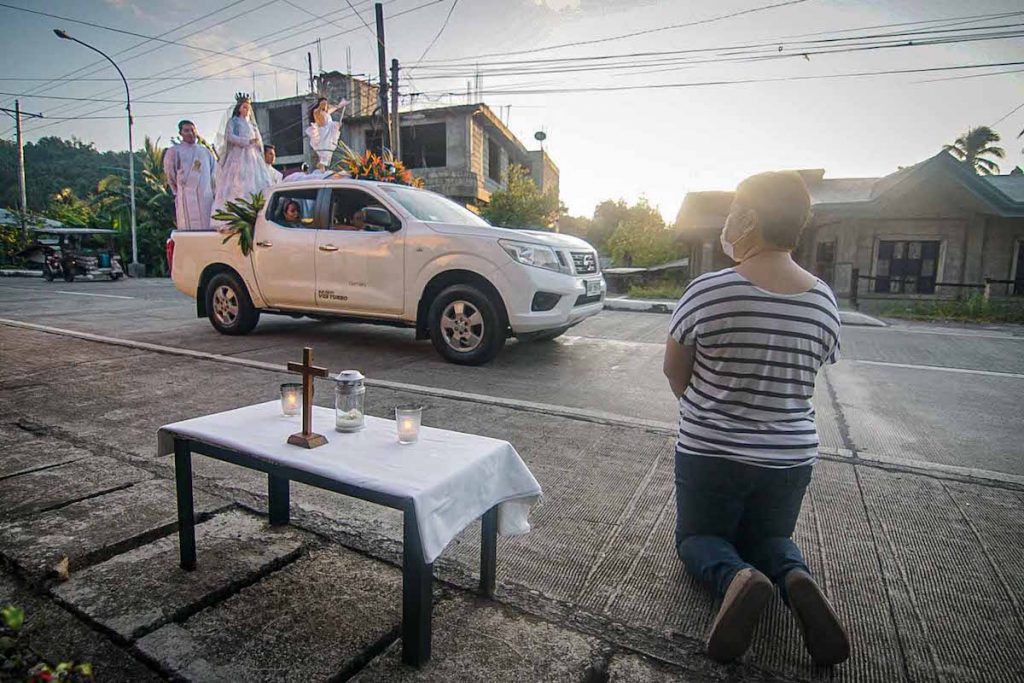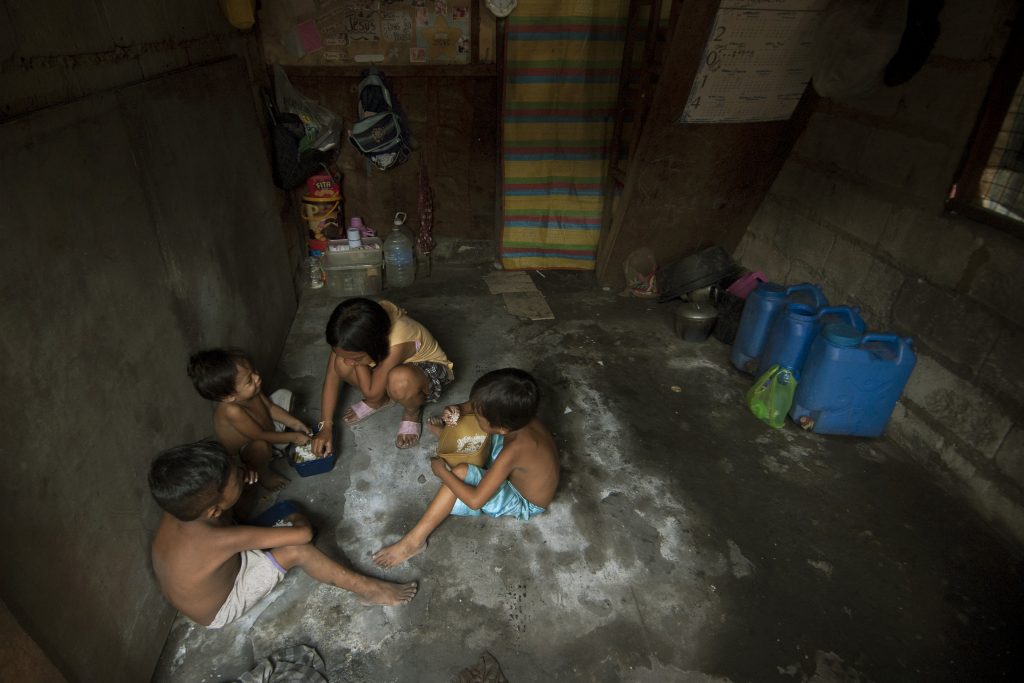
This is the Part II of the Palm Sunday reflection ‘Am I my Brother’s Keeper.’ This time, Brother Jes reflects on the Solemnity of the Resurrection of the Lord.
Greed – or the absence of justice – is not only the refusal or taking-away of wealth or opportunities from those who need it badly; it is also the refusal or taking-away of these material goods from those who may be perceived as “undeserving” of it.
Even if the less fortunate and highly disadvantaged are indicating by their demeanor that they are unwilling to exert their best efforts to earn or be deserving of such goods, the more fortunate and advantaged are never justified in withholding or depriving them from anything of value that can be used to improve their lot.
It is indeed regretful to realize that because of greed and social injustice, the marginalized are resigned perhaps with much frustration and some cynicism, to what appears to them are “irreversible” or “hopeless” fates. Social change is peculiarly both strongly desirable and strongly undesirable, depending on social positioning, and its perceived need within that positioning. Those with fortunes will not want to change a culture that can compound its increase at the expense of those who have much less, leaving these poor in a situation of an interpreted permanent depravity that is actually reversible.
Hopelessness can become contagious. The less fortunate and highly disadvantaged may still be unwilling to exert best efforts or to take the vital initiative, even in the presence of sincere generosity. Some may slip aimlessly into a life of sloth, losing the sense of thrift or wasting hard-earned money on vices or “necessary indulgences.” Some may contemplate taking “the easy roads” to prosperity and comfort, while some may attempt playing the same game of injustice against the fortunate through schemes of deception or extortion, or through actions that are unknowingly detrimental against the common good. Hopelessness can become socially destructive … even in the presence of an achievable justice.
Regardless of the circumstances in which it exists however, poverty must be eradicated because its most damaging social impact lies not in the effect it has on the present, but on the future. The development of our children, and thus the preparedness of tomorrow’s generations and the sustainability of human civilization is at stake, because economic deficiencies in one generation can grow disproportionately into cultural and moral problems for the next.
If a family is not sufficiently provided for – whether they are deserving or not – then their children will not be adequately educated nor can their health be consistently maintained. These conditions will render them incapable of acquiring the know-how, skills and values which they will need for daily living, with the alarming result that as young adults, they are ill-prepared to make good choices or effective decisions that will help them stabilize their own families. These same conditions also breed hopelessness and a consequent lack of respect for others, which are also passed on to the children, initiating a vicious cycle of poverty begetting more poverty, hopelessness begetting more hopelessness, and violence begetting more violence. It is no longer surprising if a unique segment of our society will be so hardened in heart and will, that they will recognize crime and disorder as its more preferred means of livelihood, and mutual exploitation as its only norm.

This disturbing miserable human condition exists because we have all conspired for and persistently rationalized and condoned the permanence of a society that does not love and does not care. If we ever are amazed at how and why the poor are insisting on doing subversive acts of petty injustices – for which they are relatively much easier to catch and to be imprisoned – then we must critically gaze at ourselves, and figure out who started committing these greater injustices – for which surprisingly we are not held socially accountable.
This is a clear case for mutual responsibility: If we think only for ourselves without caring about what happens to the other person, then should we not expect them to feel the same way about us? Whether or not we are doing anything unjust, for as long as we are denying them the compassion which the Christ can give them, then who should we now blame when they are stricken with hopelessness and driven to violence? If we are zealous enough to jail them for the injustices they commit, should we not be in there with them for the greed we tolerated for ourselves at their expense?
The sin of omission is just as worse as the sin of commission.
The wounds inflicted upon humanity by only one act of greed as you see, will take a long time to heal. It must be remedied and reversed by a supernatural charity, the transcendent realization of the love we must have for and the care we must give to the “significant other.” If our love and care is anchored on the unconditional and selfless love and care we believe we have received from our Lord, then such compassion may be freely and unconditionally given. It is no longer “our love”, but his Love that we are giving to them, a love that seeks nothing in return – no money, no favors, no votes. It is a supernatural love ready to give up everything, even its own heart.
Confronted with such a holy countenance of total self-giving, who would then refuse to change?
After extending our Lord’s hand in charity, then the slow reversal process of transformation must follow. We must constantly seek solutions for a permanent employability, provide opportunities and assistance for better education and healthcare, reintroduce the value of properly managing one’s finances, and underscore the true dignity behind honest work. We must give particular attention to guiding the return of those who have already fallen into the habit of crime and violence. Poverty must be transformed into stability, hopelessness into hope, violence into peace.
We must still be open to the possibility that some of us may not change as quickly as the others. Some may not even change at all. Therefore, we must pray always for God’s grace that we remain steadfast in our love for him, and in our service for his kingdom; that no matter how much their hearts have hardened, we may bear within our finiteness his infinite mercy and compassion to temper them to a new and more positive outlook on Christian life.
If we are willing to be challenged to continue what Jesus did, in giving ourselves up for God’s justice and peace, then is it not true that we – the Body of Christ – is indeed risen again?
Brother Jess Matias is a professed brother of the Secular Franciscan Order. He serves as minister of the St. Pio of Pietrelcina Fraternity at St. Francis of Assisi Parish in Mandaluyong City, coordinator of the Padre Pio Prayer Groups of the Capuchins in the Philippines and prison counselor and catechist for the Bureau of Jail Management and Penology.
The views expressed in this article are the opinions of the author and do not necessarily reflect the editorial stance of LiCAS.news.
Source: Licas Philippines
0 Comments